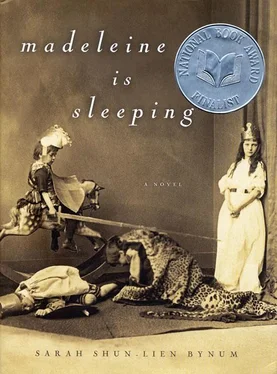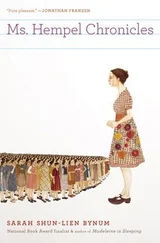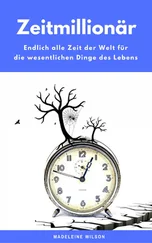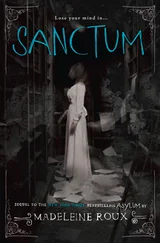Sarah Bynum - Madeleine Is Sleeping
Здесь есть возможность читать онлайн «Sarah Bynum - Madeleine Is Sleeping» весь текст электронной книги совершенно бесплатно (целиком полную версию без сокращений). В некоторых случаях можно слушать аудио, скачать через торрент в формате fb2 и присутствует краткое содержание. Год выпуска: 2008, Издательство: Harcourt, Inc, Жанр: Современная проза, на английском языке. Описание произведения, (предисловие) а так же отзывы посетителей доступны на портале библиотеки ЛибКат.
- Название:Madeleine Is Sleeping
- Автор:
- Издательство:Harcourt, Inc
- Жанр:
- Год:2008
- ISBN:нет данных
- Рейтинг книги:5 / 5. Голосов: 1
-
Избранное:Добавить в избранное
- Отзывы:
-
Ваша оценка:
- 100
- 1
- 2
- 3
- 4
- 5
Madeleine Is Sleeping: краткое содержание, описание и аннотация
Предлагаем к чтению аннотацию, описание, краткое содержание или предисловие (зависит от того, что написал сам автор книги «Madeleine Is Sleeping»). Если вы не нашли необходимую информацию о книге — напишите в комментариях, мы постараемся отыскать её.
Madeleine Is Sleeping — читать онлайн бесплатно полную книгу (весь текст) целиком
Ниже представлен текст книги, разбитый по страницам. Система сохранения места последней прочитанной страницы, позволяет с удобством читать онлайн бесплатно книгу «Madeleine Is Sleeping», без необходимости каждый раз заново искать на чём Вы остановились. Поставьте закладку, и сможете в любой момент перейти на страницу, на которой закончили чтение.
Интервал:
Закладка:
diagnosis
inside THE BATHING hut, the wide-striped cumins flapping wildly, Joseph confessed to his beautiful mother. 1 thinl iVe got a very bad illness. How terrible! she said, and gathered him to her, where he squeezed his eyes shut, listened to the thud of the canvas slapping against the poles, smelled the unfamiliar newness of her bathing costume, and tried to ignore the intractable cold that had settled deep inside him. There is a doctor staying at the hotel, his mother said. We will call on him this afternoon. The doctor was delighted by the boys condition. He pointed to the chamberpot, sitting in the middle of an expensive Persian carpet, and demanded, Do it again! Joseph obliged. He allowed the water to enter him, and then he asked it back out again. As it gurgled into the basin, the doctor clapped his hands together in astonishment. Quite fantastic! he cried. His muscular control is extraordinary! Joseph’s mother accepted the compliment with evident pleasure. But she wanted to be certain: It is not an illness? Far from it, he assured. An abnormality, certainly, but I consider it, as should you, an endowment! With a waving of his hands, the doctor indicated that the examination was now over, and that Joseph could pull up his shorts and resume a more dignified position. The muscles can be strengthened, the doctor said, but that will require careful training. Imagine a trajectory of at least several meters, like those of the magnificent fountains at Versailles. And if he can inhale water in such a manner, it stands to reason he can do the same with other substances. He can take in air, like a bellows, and learn to release it with direction and force. Can’t you see it: the boy who blows out candles with his backside. The boy with the breathing bunghole! The doctor sighed rapturously. He did not, in fact, belong to the medical profession. He had assumed the title of doctor as a reflection of his expertise in all matters hypnotic, clairvoyant, and supernatural. He had studied and improved upon the writings of Dr. Mesmer; he had enjoyed considerable success on both the spiritualist and vaudevillian circuits. The doctor believed that no one was better suited than he to recognize a great talent and, moreover, he was acquainted with an impresario who would see the possibilities of the enterprise. How fortunate, he thought, that this dear woman and her extraordinary child should have come to me, rather than a medical practitioner. Joseph and his mother, of course, were unaware of their mistake, for the doctor, not being a man of rigid principles, neglected to alert them. He wore a William II moustache that Joseph admired, and would one day emulate, when he was a grown man.
lesson
CHARLOTTE, her face still gleaming wedy, unbuttons the bodice of her dress, draws her bow across the strings. She will accompany the nocturnal torments of M. Pujol, in the hope that he will cease his moaning. The sleeping mans anguish, released into the night, has now become her own: with each cry, M. Pujol conjures her former face and companion, Griselda. Listen, Madeleine. The viol sighs. The girl sits beside her. You should listen. Music, more than any other thing in the world, teaches us emotion. The viol grows agitated. Pathos! Fury! The viol sobs. Longing. Desire. Madeleine tells herself to listen hard, for she wants to expand her meager vocabulary. She has taken inventory and discovered the emptiness of her shelves: Curiosity; Amusement; Grumpiness; Delight; Disappointment. That is the extent of it. Spreading herself onto the caravan’s floor, she presses her cheek against the floorboards, her paddles resting like two loyal dogs on either side of her face. She instructs her ear to pay stria attention. But as Charlotte sways beside her, the bow seesawing furiously, Madeleine finds that it is not her ear but her very body that is being exercised. The song rises up through her limbs, her heart, her stomach, like heat from a flat and sun-soaked rock, and deep within her something begins to reverberate, as if her own hidden strings have been set aquiver. There is only one emotion she feels, not the spectacular and edifying range that Charlotte has promised: no fury, no pathos, no longing. Just a wild tumult inside her. Charlotte, she says from the floor. I could do that! She points at the strings, the Bickering bow: When you play, I feel as if I could play, too. As if to play so beautifully were as easy as taking and releasing a breath. As easy as falling asleep and having a dream.
stirring
MADELEINE stirs in Her sleep
indolent
as far as mother understands, hers is not the only family ever to experience calamity. Daughters wander off into the woods, stumble into prostitution, fall in love with sailors, are eaten by wolves. When Mother was a child, she knew of a shapely girl who was plucked from her bath by a large and lice-ridden bird; it held her dripping from its talons and then, squawking merrily, took to the sky The girl’s family left the tub out by the barn, in the hope that once the bird tired of her company, it might return her to her bath. Over time the tub rusted and rattled; sometimes mice would scamper over its edge and drown. But the misfortunes of other families seem always to involve disappearance or abduction. The girl is missed; she is mourned; she is remembered as bonny and helpful and light on her feet. What a Joss! What a shame! Women clasp their daughters to their breasts and whisper horrors into their ears: Darkness. Appetites. Trees. And no moon to light your way. And then there is Madeleine, who doesn’t seem to be going anywhere; who takes up room; who attracts attention; who lies there, sighing voluptuously, as Mother sweats over the fire. Nothing makes ones own work more difficult than being in the presence of another’s idleness. The sight of Madeleine, stretched upon the bed, begins to try her mother’s patience. Occasionally, she she grows careless with the handle of her broom. Accidentally, she sets the pots achattering. In the middle of the night, she undertakes an experiment: when a candle drips its wax onto Madeleine’s cheek, it sets into motion a most fascinating series of twitches.
she dreams
gypsies, it seems, can no longer captivate a crowd. A woman who looks like a viol, a girl who waddles on the seared stumps of her hands, a man who sings from his backside, are incapable of provoking wonder. The procession of gypsy caravans trundles from one empty venue to the next. The fearsome Marguerite, who once wore a sword, who once played the hero, finds herself dangerously dose to despair. Miraculously, a summons arrives. The photographer has circulated his portraits among the wealthy of Toulouse. A widow, renowned for her fecund imagination, purchases every last photograph and hangs them all in her high-ceilinged drawing room. She sits, daily, for several hours, in this gallery of grotesques. One Sunday, when the lilacs are in bloom, she becomes animated by an idea. She wishes the company to pay her a visit, at her expense. She has a proposition.
depraved
like this? Madeleine asks, paddle suspended in midair Just so, the widow says. The girl’s hand falls squarely upon the backside of M. Pujol. Smack! is the sound of her palm meeting the flesh of his bared cheeks. His elegant tailcoat, his white butterfly tie, his black satin breeches, are folded neady in a pile that sits by the door. Louder, the widow says, from her chair. She cups a hand around her ear.
indivisible
the gypsies install themselves on the velvety lawns that surround the house. From a window, high above them, die widow watches as the performers step out from their caravans. Here they are, in the sunlight, on the grass; there they were, in the candlelight, on the carpet. The sight wounds her, fills her with pleasure: yes, those are the same bodies, the same gende souls. How could that be? How could the child tumbling along the shrubbery be the child who wielded her misshapen hands with such stimulating results? How could the man brushing out his coat be the man who flinched, and shivered, and moaned? And she, is she the same, standing with a Sevres cup, looking out the window of her house? As a very small child, she was told the story of a tailor who, for fear of losing his shadow, secured it to himself with stitches. This is how she imagines it: a woman sitting in a chair, in the candlelight, cupping her ear, is stitched onto the woman standing here with a Sevres cup in her hand. And she knows that, as with all thing? sutured, the two leaves cannot be separated without destroying them both. She is certain of it. Yet she persists in picking at the edges; she delights in seeing how the wound seeps, where the scab has been lifted away by a fingernail.
Читать дальшеИнтервал:
Закладка:
Похожие книги на «Madeleine Is Sleeping»
Представляем Вашему вниманию похожие книги на «Madeleine Is Sleeping» списком для выбора. Мы отобрали схожую по названию и смыслу литературу в надежде предоставить читателям больше вариантов отыскать новые, интересные, ещё непрочитанные произведения.
Обсуждение, отзывы о книге «Madeleine Is Sleeping» и просто собственные мнения читателей. Оставьте ваши комментарии, напишите, что Вы думаете о произведении, его смысле или главных героях. Укажите что конкретно понравилось, а что нет, и почему Вы так считаете.












